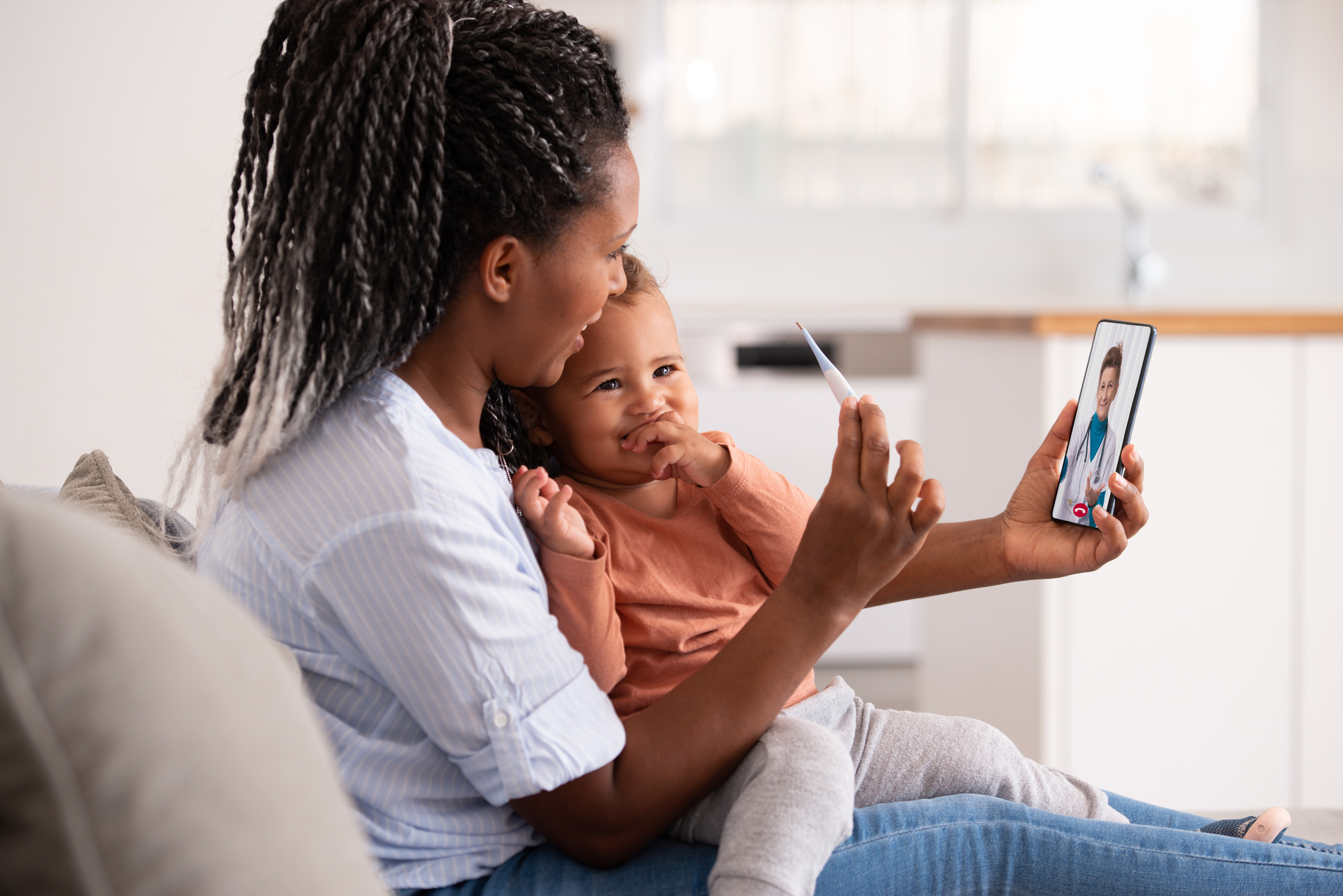While everyone gets sick, not everyone has the opportunity to rest and recover. Between illnesses like the flu or the COVID-19 pandemic, thousands of Americans are making the tough choice of either working through their symptoms or giving themselves a day off.
Taking a sick day used to mean taking a break from your commute and the daily grind. But with many people still working from home, true sick days now seem hard to come by.
Normalizing taking a sick day and focusing on self-care is key. When you don’t take a break you risk lengthening your recovery time, limiting your productivity, and harming your mental health. You could also be putting those around you at risk.
For those who work hourly or for employers who don’t offer paid time off, taking a sick day can be stressful. And for parents, the cost of childcare or the pressures of taking care of your child at home while feeling under the weather is far from restful.
Discover the mental and physical health benefits of taking a sick day and tips for how you can reduce the stress of taking a day off.
Risks of Not Taking a Sick Day
The workplace is no place for a sick person. Remember, it’s not just about you. As we’ve seen with the COVID-19 pandemic, just because you can get over something quickly doesn’t mean others will.
As a general rule-of-thumb, staying home for 24-hours once you start experiencing cold, flu, or COVID-19 symptoms will help lower the risk of spreading illness to others.
Once you return to work, be sure to wash your hands, wipe down surfaces after you’ve touched them, and that you’re wearing a mask. When you take the time to recover and continue to take steps to protect others, you keep the entire community healthier.
You May Not Recover as Quickly
When you’re sick, your immune system is working overtime. Working while you’re under the weather makes it harder for your immune system to do its job.
Stress weakens your immune system, making you susceptible to viruses and bacteria — which can extend the length of your illness.
Depending on the nature of your illness, adding more stress to your immune system could lead to costly treatments, like treating bronchitis, strep throat, or pneumonia.
You’re Not as Productive
When you don’t feel well or need a mental health day, do you really feel up to tackling that big project or heading into a company-wide meeting?
Pushing through an illness at work means you’re not operating at 100%. It’s hard to focus and stay concentrated for long periods of time.
Don’t work through the head fog. Researchers have found that less time is lost from people staying home than from them showing up but not performing at full capacity.
You Risk Harming Your Mental Health
If you aren’t taking care of your physical health, your mental health can be impacted, too. It can be hard to accept when you’re sick and can’t be as active or productive as you typically are.
Don’t be afraid of taking a sick day for mental health. The culture that has celebrated “pushing through it” or “hustling” is changing. Let your boss know if you’re overwhelmed and need a breather. Rest is necessary and key for long-term success at any job.
Reducing the Stress of Taking a Sick Day
There are ways you can reduce those anxieties and prepare for taking a sick day. From communication with your coworkers to knowing when to call a doctor, here are tips for how to reduce the stress of taking a sick day so you can get the rest you need.
Communicate with Your Boss and Coworkers
With higher support and demand from Americans, more companies are offering better paid time off. Business owners are finding that they benefit when they allow their employees paid sick time off.
Give your boss and coworkers a heads up as soon as you can so they can prepare for your absence. Be brief in your description of why you’re taking the day, off and keep private what you want.
Take 20-30 minutes to send emails to your supervisor(s) and coworkers letting them know you will not be in, any project updates they should know about, and how they can best function in your absence. Be sure to mention any meetings you may miss, and when you’d like to reschedule them.
Make Rest a Priority
It may be tempting to check your inbox, Slack, or texts. But truly disconnecting is key to using your time off to rest.
Set an automatic reply in your email for anyone who does try to reach you — this still lets them know you’re not in work mode, but will get back to them.
If you have the luxury, consider turning off your phone. All those emails and texts will still be there when you’re feeling better and have the energy to respond.
Practice Self-Care
Self-care includes all the things that help you feel balanced — like a healthy diet and exercise routine, rest, and activities that help reduce stress. When you’re feeling under the weather mentally or physically, focusing on self-care can help you recover.
Self-care looks different for everyone, especially when you’re sick. Binging your favorite TV show, doing some skincare, or taking a soothing bath are all ways you can take time for yourself.
Accepting help from others is also a form of self-care. Ask for help with meal prep, picking up a prescription, or other chores so you can focus on resting and not exposing yourself to others during your day off.
Transform Your Sick Day With Telemedicine Services
When you’re sick, the last thing you want to do is drive to the doctor’s office. This is especially risky during the pandemic, with rising COVID cases every day.
Plus, paying for childcare while you’re sick or bringing your child with you to the doctor can mean more lost income, extra expenses, and extra stress.
With the growth of telemedicine, these concerns are a thing of the past. myCallADoc telemedicine services offer affordable, convenient, and quality medical care from your home, office, or while traveling.
Once you sign up to become a member, you can start speaking to a doctor in minutes using your smartphone, laptop, or tablet. myCallADoc’s board-certified doctors and pediatricians are available to speak 24-hours a day, 7 days a week, 365 days a year. Start your treatment plan and pick up prescriptions right away so you can get to feeling better, sooner.
No insurance? No problem. With or without an insurance plan, you can get treated with no copays, no deductibles, and no unexpected doctor bills. And beyond your doctor visits, you can also receive up to 80% off name-brand and generic prescriptions at pharmacies nationwide.
Good healthcare should be accessible for everyone, no matter where you are — physically, mentally, and economically. Whether you’re taking a sick day or seeking out preventative treatment, it’s time to take control of your health and take care of yourself.
Sign up for myCallADoc today! >



